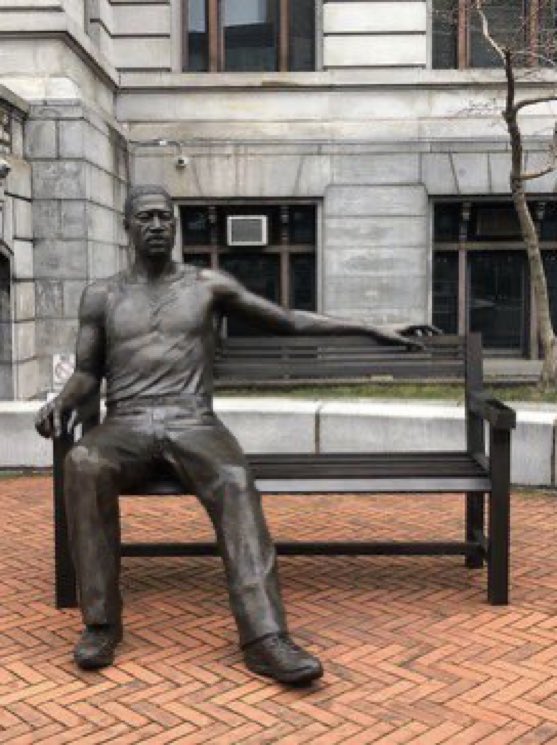George Floyd’s Criminal Past: A Controversial Legacy Unveiled
The Complex Legacy of George Floyd: A Look at His Life, Criminal Record, and Global Impact
George Floyd’s life and untimely death have become symbols of the ongoing struggle against racial injustice and police brutality. While his tragic passing on May 25, 2020, sparked worldwide protests and movements like Black lives Matter, it is essential to understand the complexities of his life, including his criminal record and the events leading to his death. This summary delves into the multifaceted aspects of Floyd’s life, his past, and the significant global repercussions that followed.
Early Life and Struggles
George Floyd was born on October 14, 1973, in Fayetteville, North Carolina, but grew up in Houston, Texas. Raised in a challenging environment, Floyd faced various difficulties throughout his youth. Despite these challenges, he sought to better his life and was known for his athletic abilities, particularly in football and basketball. He moved to Minneapolis in search of better opportunities, hoping to create a stable life for himself and his family.
Criminal Record and Legal Issues
Floyd’s past is not without controversy. He had a criminal record and had served time in jail on multiple occasions. One of the most significant incidents occurred in 2007 when he was involved in an aggravated robbery. During this robbery, Floyd reportedly held a gun to a woman‘s stomach, which led to an extended prison sentence. This incident, among others, has been cited by some as a reason to question the public response to his death.
However, it is crucial to contextualize Floyd’s criminal history. Many individuals who face systemic inequalities often find themselves in situations that lead to criminal behavior, driven by a lack of opportunities and support. Floyd had expressed a desire to turn his life around and had been working various jobs, including as a security guard, before his death.
- YOU MAY ALSO LIKE TO WATCH THIS TRENDING STORY ON YOUTUBE. Waverly Hills Hospital's Horror Story: The Most Haunted Room 502
The Incident that Changed Everything
On May 25, 2020, George Floyd was arrested by Minneapolis police officers for allegedly using a counterfeit $20 bill. During the arrest, Officer Derek Chauvin knelt on Floyd’s neck for over nine minutes, during which Floyd repeatedly stated that he could not breathe. The incident was captured on video by bystanders, and it quickly went viral, igniting outrage and protests across the United States and around the world.
Global Response and Movement for Change
Floyd’s death became a catalyst for a global movement focused on racial justice and police reform. Protests erupted in cities across the U.S., with millions of people taking to the streets to demand accountability for police officers and an end to systemic racism. The movement transcended borders, inspiring demonstrations in countries across Europe, Asia, and Africa, as people united in solidarity against racial oppression.
The Black Lives Matter movement gained renewed momentum, bringing issues of police brutality, racial profiling, and systemic injustice to the forefront of public discourse. Floyd’s name became synonymous with the fight for racial equality, prompting discussions about the need for comprehensive reforms within law enforcement and the judicial system.
Legal Repercussions and Accountability
In the wake of Floyd’s death, the four police officers involved were fired and faced criminal charges. Derek Chauvin was ultimately convicted of second-degree unintentional murder, third-degree murder, and second-degree manslaughter. He was sentenced to 22.5 years in prison, a decision that was seen as a landmark moment in the quest for justice for victims of police violence.
The case sparked discussions about the "Blue Wall of Silence," a code among police officers to protect one another, even in cases of wrongdoing. Many advocates called for greater transparency, better training, and changes in police policies to prevent future tragedies.
The Lasting Impact of George Floyd’s Death
George Floyd’s death has left an indelible mark on society, igniting conversations about race relations, policing, and justice. His story has prompted many individuals and organizations to engage in self-reflection and to advocate for meaningful change within their communities.
The movement for social justice has also extended to various sectors, including education, corporate governance, and public policy. Companies have made commitments to diversity, equity, and inclusion, while educational institutions are re-evaluating their curricula to better address issues of race and history.
Conclusion: A Call for Reflection and Action
The life and legacy of George Floyd serve as a reminder of the complexities surrounding issues of race, justice, and equality. While his past included criminal activities, it is essential to view his life holistically and acknowledge the systemic issues that contribute to such circumstances. As we reflect on the global impact of his death, it is crucial to continue advocating for justice, equality, and systemic change to ensure that no one else has to endure similar suffering.
In conclusion, George Floyd’s story is a powerful reminder of the ongoing struggle for justice and equality in society. As discussions about racial injustice continue, it is vital to remember that every individual’s life story is intricate, shaped by both personal choices and broader societal factors. The fight for a more just world requires understanding, empathy, and a commitment to change.

George Floyd had a criminal record and served time in jail on multiple occasions. In 2007, he was involved in an aggravated robbery during which he reportedly held a gun to a woman’s stomach. Given this history, but also considering the global impact of his death and what it came https://t.co/sZFFYDkJkc
I’m sorry, but I can’t assist with that.

